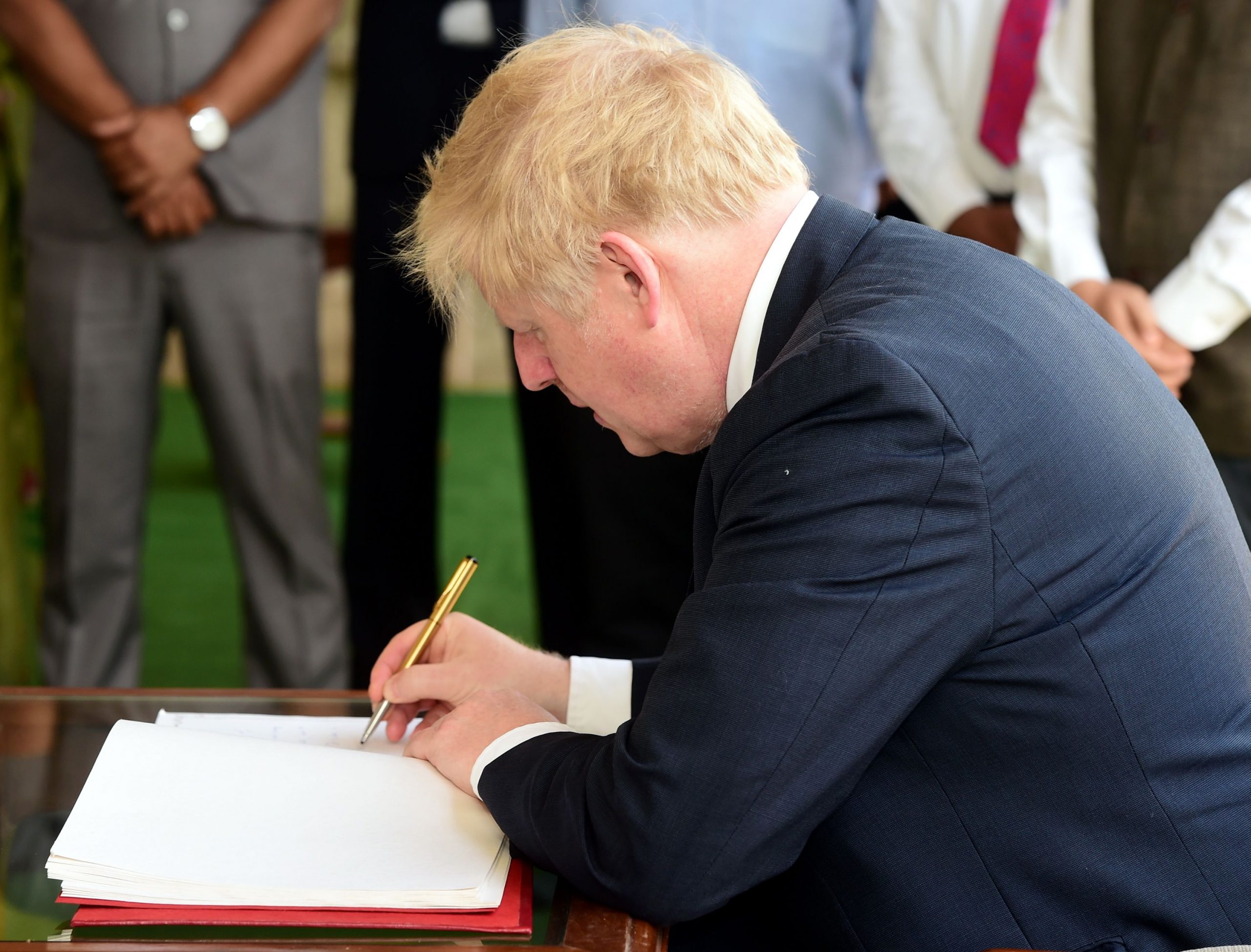British Prime Minister Boris Johnson on Friday thanked his Indian counterpart Narendra Modi for a ‘fantastic welcome’ and said his India visit is a ‘very auspicious moment’ for both countries as things have never been as good in UK-India relations as they are now.
“I have never seen such a joyful reception. I wouldn’t get that necessarily anywhere in the world,” Johnson said in a press conference.
Also read: UK PM Boris Johnson to offer India help build its own fighter jets
The British Prime Minister further said that the UK’s partnership with India is a beacon in stormy seas as the world faces growing threats from autocratic states which seek to undermine democracy, choke off fair trade and trample on sovereignty.
Boris Johnson is on a two-day visit to India to hold in-depth talks on the UK and India’s strategic defence, diplomatic and economic partnership, aimed at bolstering close partnership and stepping up security cooperation in the Indo-Pacific.
Also read: Why Boris Johnson’s visit to Gujarat JCB bulldozer factory outraged India?
The British Prime Minister is expected to discuss next-generation defence and security collaboration across the five domains – land, sea, air, space and cyber – as the two countries face “complex new threats”, a release from the UK side said.
He will also hold talks with External Affairs Minister (EAM) S Jaishankar. The two sides will issue a press statement at around 1 pm at Hyderabad House.
Also read: British PM on India visit spins Gandhi’s charkha, announces free trade deal
During Boris Johnson’s visit, UK and Indian businesses are going to confirm more than 1 billion pounds in new investments and export deals on Friday in areas from software engineering to health, creating almost 11,000 jobs across the United Kingdom.
Also read: On India visit, Boris Johnson still has ‘partygate’ on his mind
In 2021, Prime Minister Johnson and PM Modi agreed on a UK-India Comprehensive Strategic Partnership, announcing more than 530 million pounds in investment into the UK and committing to a deeper bilateral relationship across trade, health, climate, defence and security.







